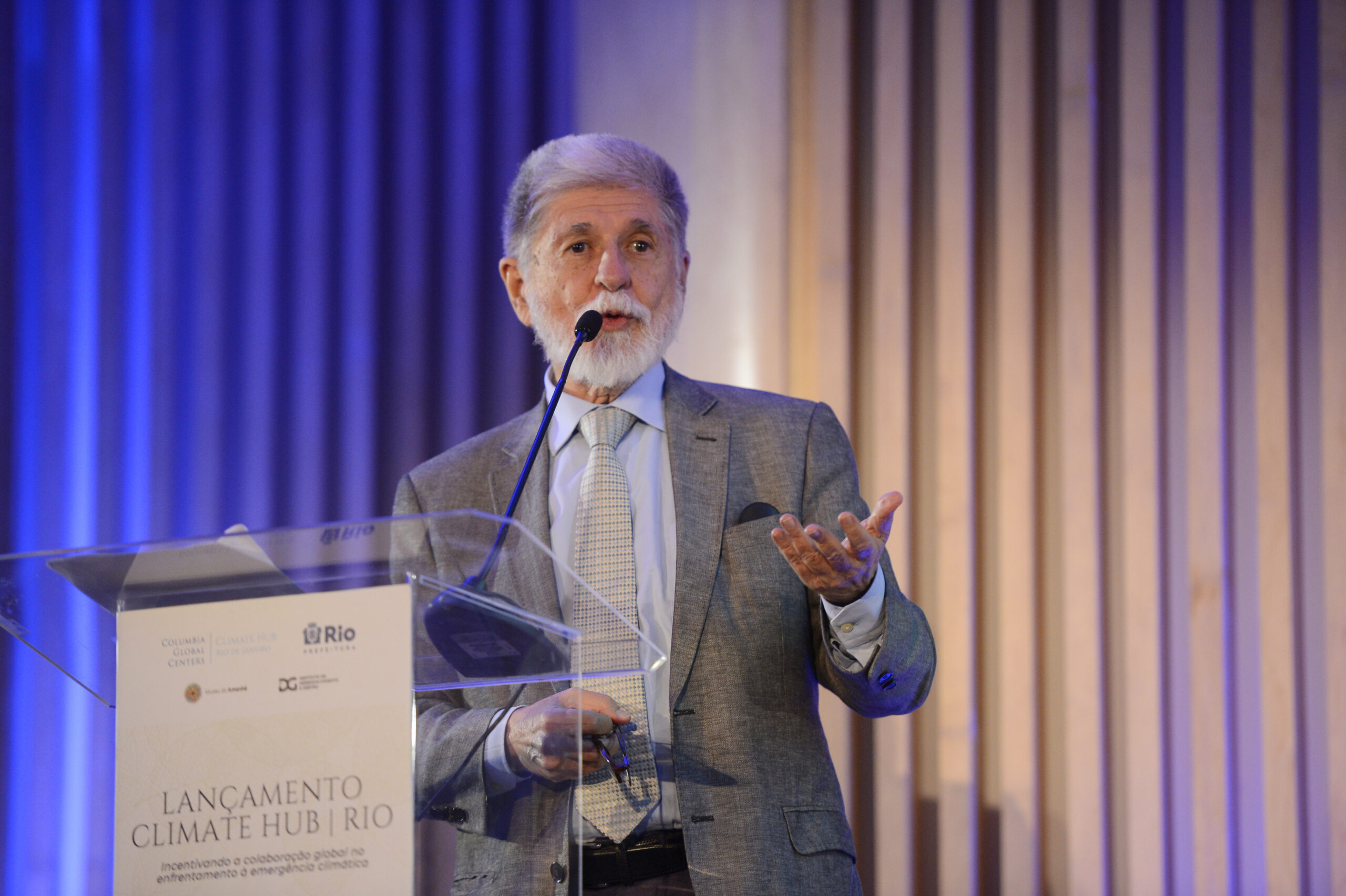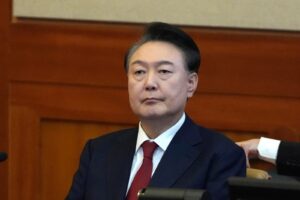
Published 4/20/2023 4:46 PM
President Luiz Inácio Lula da Silva’s special advisor for international affairs, Celso Amorim, conducted a battery of interviews in the national press to counteract the displeasure of the White House, in Washington, with Brazil’s opinion on the war in Ukraine. With that, he revealed that Brazil represents a positioning of many countries that seek a multipolar balance in the world, instead of the exclusive hegemony of the USA.
While the diplomacy of most countries aligns with the US or abstains, the Brazilian president has chosen, since his election campaign, to take a more assertive position on the subject, wanting to promote dialogue for peace.
The proposal to gather allies for a dialogue table that leads to the end of the war, however, comes at a time when the Western powers, encouraged by the US, move to send even heavier weapons to the battlefield in Ukraine. All claim to be defending that country’s right to defend itself against Russia.
What generated the most reactions on the part of the United States and the European Union were statements by President Lula, during a trip to China, that the western powers were encouraging the war by sending weapons. However, the Brazilian strategy of maintaining neutrality and contributing to peace follows the country’s tradition of valuing multilateralism.
The coordinator of strategic communication of the National Security Council of the White House, John Kirby, a spokesman for the American government, even said on Monday (17) that the Brazilian position “is deeply problematic” and that the country would be “ parroting (automatically repeating) Russian and Chinese propaganda” about the war.
Someone needs to stop
On Sunday (16), Lula’s statement was interpreted by some as blaming Ukraine for the conflict that has dragged on in Eastern Europe for 13 months.
“The president [russo, Vladimir] Putin does not take the initiative to stop. [O presidente ucraniano, Volodimir] Zelensky does not take the initiative to stop. Europe and the United States continue to contribute to the continuation of this war,” said Lula. Despite the obviousness of the statement in pondering that one must want to stop for the war to end, it was sensitively received by the side under attack.
After the negative reactions, Celso Amorim stated that it is “totally absurd” to say that Brazil parrots the Russian position, in an interview with the channel Globo News on Tuesday (18).
“To say that Russian propaganda ‘parrots’ is utterly absurd. We have several points of convergence, but at various times Brazil condemned, in the current government, the invasion of Ukraine”, he recalled.
AT Folha de S. PauloAmorim defended Lula’s position on the war in Ukraine, recalling that loud and clear criticism had already been made of Russia, which invaded the neighboring country, and that Brazil even accompanied Western nations in condemning the invasion of Ukraine in UN.
grudge and revenge
The diplomat claims that Lula’s reservations are not just about the position of the US and the European Union in relation to the conflict. He claims that peace must be sought, and that “sanctions” or insistence on “defeating Russia” will not solve the matter.
“What do you want? A revenge? Teach a lesson?”, he says to Sheet on the position of Western countries in the conflict. “The last time you tried this [com o Tratado de Versalhes depois da derrota da Alemanha na Primeira Guerra Mundial] what happened”, says the ex-chancellor, referring to the rise of Nazism, after the European intransigence with Germany defeated.
“Creating this resentment brings the fear of a situation similar to the one that arose between the two world wars, and which led to the second world war”.
Amorim also claims that Brazil gives due importance to the US role in recognizing the electoral result questioned by former president Jair Bolsonaro (PL). But they are not “guarantors of our democracy”, and that does not oblige the Lula government to compromise for US interests in international issues. “There was no pact to say: Look, we support the electoral process and you will support us in our conflict against China”
“It doesn’t force us to have to follow every opinion they have. We can differ, as we differ in other things, in trade negotiations and other issues.”
The value of multipolarity
“In reality, President Lula’s position is very clear: it is a defense of Brazilian interests and the Brazilian perception of the world”, he emphasized. The former chancellor says that Brazil is interested in a multipolar world without a cold war between good and bad because in it ‘our voice will be heard more’.
As a middle power, Brazil will always defend multipolarity, in which there is more than one strong power, and not just the US dictating the course of geopolitics. Otherwise, the automatic alignment ends up nullifying the Brazilian voice. Amorim cited the debate on the de-dollarization of economic relations, which seeks greater balance in the world.
Specifically with regard to the war, Amorim said that Brazil’s quest is for peace and has already shown itself to be clearly critical of the Russian invasion. “Brazil has condemned numerous times and on numerous occasions [a guerra entre Rússia e Ucrânia]. President Lula verbalized criticism of the Russian action of invading Ukraine. Brazil defends the principle of territorial integrity of States. There is no doubt about it,” he said.
He reaffirmed that Brazil defends the UN Charter and international law. “Now, what we think is that there is no point in just doing this, or imposing sanctions, or wanting to defeat Russia. It will not bring peace. Russia is a very important and very large country, in addition to being a partner of Brazil. And you have to find a way that there is [negociações de paz]. It was the emphasis of what President Lula said”.
For Amorim, as for the government, the willingness of the Western powers to deepen the war is clear, according to their own declarations. “There are specific statements [de autoridades dos EUA e de países europeus], like ‘we have to defeat Russia’ or ‘we have to weaken Russia’. This has varied over time.”
Just working to strengthen Ukraine militarily, or to impose sanctions on Russia, in the diplomat’s opinion, does not contribute to peace. “You don’t contribute to the conversation, you don’t create a favorable climate for the search for negotiations”.
Brazil argues that Europe can criticize Russia’s specific action against Ukraine, but in a way that does not make peace impossible.
Amorim is emphatic in saying that war is not a solution for either Russia or Ukraine. And this is expressed in Brazil’s position.
Importance of Brazil
He also stressed that this is not about Brazilian naivety, as the diplomatic effort is to create a group of countries for peace. For this, Lula has been traveling and talking with the Chinese leader, as well as other leaders of countries that have no interest in European instability.
“Now, contrary to what certain editorials say, Brazil is an important country, it is one of the five largest countries in the world in terms of territory, in short, it is a highly respected country internationally,” he said. Unlike countries that automatically align themselves with US interests, Brazil expresses a neutrality and disinterest in the war of many other smaller or equal countries.
When one says “there is a very strong reaction” to Lula’s statements, the presidential adviser says that it is a strong western reaction. “Now, if you look at what Indians, Africans and many others are thinking who may not have the same conditions to express themselves, the view is not the same”.
The capital that Brazil plays at these moments is its historical capacity for dialogue, says Amorim, “which is a story of peace with its neighbors, of mediation, of seeking peaceful solutions to conflicts, as is in our Constitution and also in the Charter of UN.
chinese position
Amorim highlighted the good understanding that Brazil has with China. In his opinion, China is not “just committed to defeating the US or whatever”, although he admits that there is competition.
“China is the country that has grown the most with globalization. And globalization depends on peace. Our position in relation to this, even if starting from different perspectives or points, is close to [à da China], because we also want peace. We don’t want a cold war nor do we want to make a choice. [por um dos lados do conflito]”, he compared.
Amorim also mentioned that the position on the war is not homogeneous, even in Europe. He cited French President Emmanuel Macron, who spoke longer with Xi Jinping than Lula. “And he also came back saying that it was important to affirm the strategic autonomy of Europe”.
Macron said that Europe cannot solve its own problems, and that therefore it does not have to meddle in Taiwan. “I imagine that in Washington there were people who didn’t like it. But this is normal. It’s not hostility. It is a search to defend the interest of your own country”, he analyzed.
Source: vermelho.org.br

